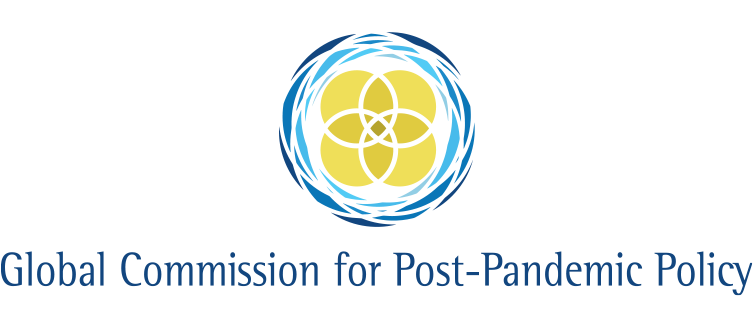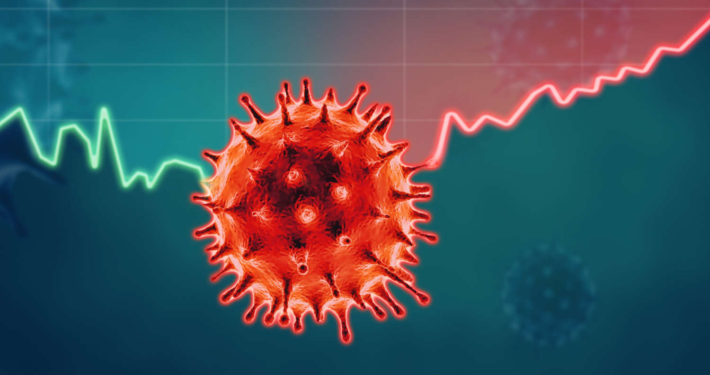The good, the bad and government plans
POLICY MONITOR
By Luke Lythgoe, GCPPP Staff, May 21st 2021
After every pandemic, a flurry of inquiries and reports — from governments, international agencies and independent institutions — offer recommendations on how to improve responses, increase resilience and save lives. But, as COVID-19 has shown, successfully recalling and implementing these lessons during subsequent pandemics can be haphazard. This Policy Monitor looks at what emerges from the record about the strengths and (mainly) weaknesses of previous efforts by governments to prepare for pandemic-type threats, and the degree to which lessons had been learned.
Before COVID-19: ‘Fundamentally weak’
In October 2019, just two months before COVID-19 was first flagged in Wuhan, the inaugural Global Health Security Index was published. A project of the Nuclear Threat Initiative (NTI) and the Johns Hopkins Center for Health Security (JHU) and developed with The Economist Intelligence Unit (EIU), the founders anticipated that “over time, the GHS Index will spur measurable changes in national health security and improve international capability to address one of the world’s most omnipresent risks: infectious disease outbreaks that can lead to international epidemics and pandemics.” Correctly, as it turned out, the international panel behind the report found that the current state of national health security was “fundamentally weak around the world, and no country is fully prepared to handle an epidemic or pandemic”.
Much commentary has focused on the fact that many of the countries the GHS Index considered “most prepared” – notably the United States (ranked 1st), the UK (2nd) and France (11th) – fared particularly poorly in terms of both direct and indirect mortality during the COVID-19 pandemic. Even more can be learned, however, from the shortcomings the index exposed in all countries’ preparedness.
Notably, the GHS Index revealed that despite a majority of countries having emergency response plans in place for an epidemic, regular testing of these practical responses was lacking. Moreover, in many countries the plans themselves fell short of what the report-compilers considered necessary.
During COVID-19: Unpracticed, unrectified, unmaintained
In its May 2021 report into the response to COVID-19, the WHO’s Independent Panel For Pandemic Preparedness & Response insists, in a remark very much in line with the GHS Index from 2019: “Drills and simulation exercises resulting in immediate rectification of identified weaknesses must become routine.” However, prior to COVID this “immediate rectification” had been lacking even in those “most prepared” countries.
In 2016, 950 British officials took part in a simulation named Exercise Cygnus which played out a “worst-case-scenario” influenza outbreak. The exercise reported that the UK’s plans were “not sufficient to cope with the extreme demands of a severe pandemic”, and laid out recommendations for improvement. Some were instituted, but during 2020 it emerged that many problems that had been flagged during Cygnus remained, notably: confusion arising from “siloed” and conflicting actions between government departments and localities; risks around care-home capacity; and a lack of contingency planning around school closures.
Across the Channel, France offers a related lesson: that of maintaining preparedness for the long term and even after false alarms. Following a spate of disease threats shortly after the turn of the millennium, the French government invested in millions of units of PPE and established a new organisation, Eprus (the Health Emergency and Preparedness Response Agency), somewhat along the lines of the US Centers for Disease Control and Prevention. When swine flu emerged in 2009, the health minister ramped up PPE stockpiling to 2.2 billion units, bought up 94 million vaccine doses and requisitioned gymnasiums to administer them. As a result, the government spent €1 billion on an epidemic that turn out to kill only 342 French citizens. This experience, plus a tough recession, made it harder to justify maintaining a high-cost pandemic prevention approach. The PPE stockpiles were allowed to expire and were not replaced, and Eprus was merged into a larger health body. This left France exposed in 2020 to a pandemic it would have been much better prepared for a decade earlier.
Decision-making structures and politics
How decisions are made during a pandemic, and who has responsibility for making them, emerges as a critical factor. Some experts recommend that responsibility for pandemic response be largely removed from politicians and given to an appointed official or office within government that is empowered with the authority and accountability to get the job done. Yet politics and politicians will always play a decisive role, for good or ill.
This certainly seems to be the case for the top-ranked nations in the GHS Index: the US and UK. In both, decision-making by politicians led to delay and inconsistency when what was needed was speed and clarity.
The Trump administration’s revolving door of officials distracted and weakened pandemic decision making. In 2018 President Trump’s national security adviser John Bolton dismantled a National Security Council (NSC) unit dedicated to global health security, resulting in the departure of its director – although there is dispute as to whether this was elimination of the capability or its incorporation into another unit in the NSC. Rising tensions with China also brought the reduction of health security personnel posted there just as researchers were becoming more alive to the threat posed by coronaviruses.
The GHS Index for the UK illustrates the difference between notional capacities and actual performance, once political decisions intervene. For example, although the GHS Index had given a high score to the country’s imposition of trade and travel restrictions out of health concerns, in 2020 this was neutralised in practice by Prime Minister Boris Johnson’s reluctance to close UK borders, eventually doing so almost a year after most other countries.
Many commentators have largely attributed the country’s COVID disaster to the personal and policy failings of Prime Minister Johnson and his ministers, most damningly in a recent book by Sunday Times investigative journalists. This blow-by-blow dissection of indecision points to the distractions of Brexit and Johnson’s personal problems, his absence from key crisis meetings, embracing then abandoning a “herd immunity” approach, dithering over lockdown, and then largely repeating the same behaviours for the UK’s second, even more disastrous wave.
In contrast, following the SARS outbreak in 2003, Taiwan restructured its Centre for Disease Control (CDC) and created an ad hoc Central Epidemic Command Center which was quickly activated on January 20th 2020 and took centralised control of testing, border controls, PPE supply and press conferences. Taiwan had also recruited more infectious disease experts and established a new unit charged with analysing and collecting information on outbreaks since SARS. The success of Taiwan’s response depended on many other factors, too, but this advance preparation also served the country well.
The politics of public inquiries
The WHO’s Independent Panel recommends that the coming weeks and months need to see “national governments taking responsibility… both demonstrating and demanding accountability”. Many countries seek to do this by holding a public inquiry. Time is of the essence, especially if lessons need to be implemented before the next pandemic. Unfortunately, governing politicians have an interest in delaying inquiries until memories are less fresh and ideally findings do not impact upcoming elections. Parliaments, courts, the media and civil society should insist on a speedier resolution, but this is easier in some countries than others.
In Brazil, which has the second highest COVID death toll in the world, President Jair Bolsonaro is already facing a damning public inquiry even as the virus continues to rage. The balance of constitutional powers in Brazil made this possible. Initially the Senate’s president refused to approve the inquiry, but capitulated after the Supreme Court ruledthat enough senators had requested it and that the probe should go ahead. Already the inquiry, which has “huge potential to disrupt politics”, has heard from a dismissed former health minister on how Bolsonaro was warned “systematically” about the consequences of ignoring the science on COVID and how the president was “prescribing chloroquine without any scientific evidence”. The highly anticipated testimony of another health minister close to Bolsonaro is expected later in May.
In the UK, it is government ministers who call public inquiries. The loss of life during the COVID-19 pandemic, and the potential systemic failings underpinning it, legally require a government investigation under Article 2, the “right to life” article, of the European Convention on Human Rights. For a government to refuse to do so would likely prompt a judicial review, and indeed the group ‘Covid-19 Bereaved Families for Justice’ has already threatened the government with legal proceedings on this basis in March. Prime Minister Johnson has now announced a public inquiry, set to begin in spring 2022 with the possibility of its final report being delivered several years after that. Paul Bowen QC has described the issue of the COVID-19 response as a good example of the “limitations of the current system” in the UK, where public inquiries are the best judicial route for digging into systemic issues but can be costly and time consuming.
Nevertheless, public enquiries and other reports are necessary, but not sufficient. Since the H1N1 “swine flu” pandemic in 2009, at least 11 high-level panels and commissions have laid out specific recommendations for global pandemic preparedness in 16 reports. Countless more have been conducted at the national level. And yet, notes the WHO’s Independent Panel, “despite their consistent messages, few of these suggestions have been implemented”.
Photo by Andy Feliciotti on Unsplash
GCPPP Newsletter
We now publish a weekly newsletter to inform friends and supporters of the Global Commission’s progress and to provide updates when new content is published. Please sign up here:







 Fateme Alaie, Unsplash
Fateme Alaie, Unsplash Markus Spiske, Unspash
Markus Spiske, Unspash